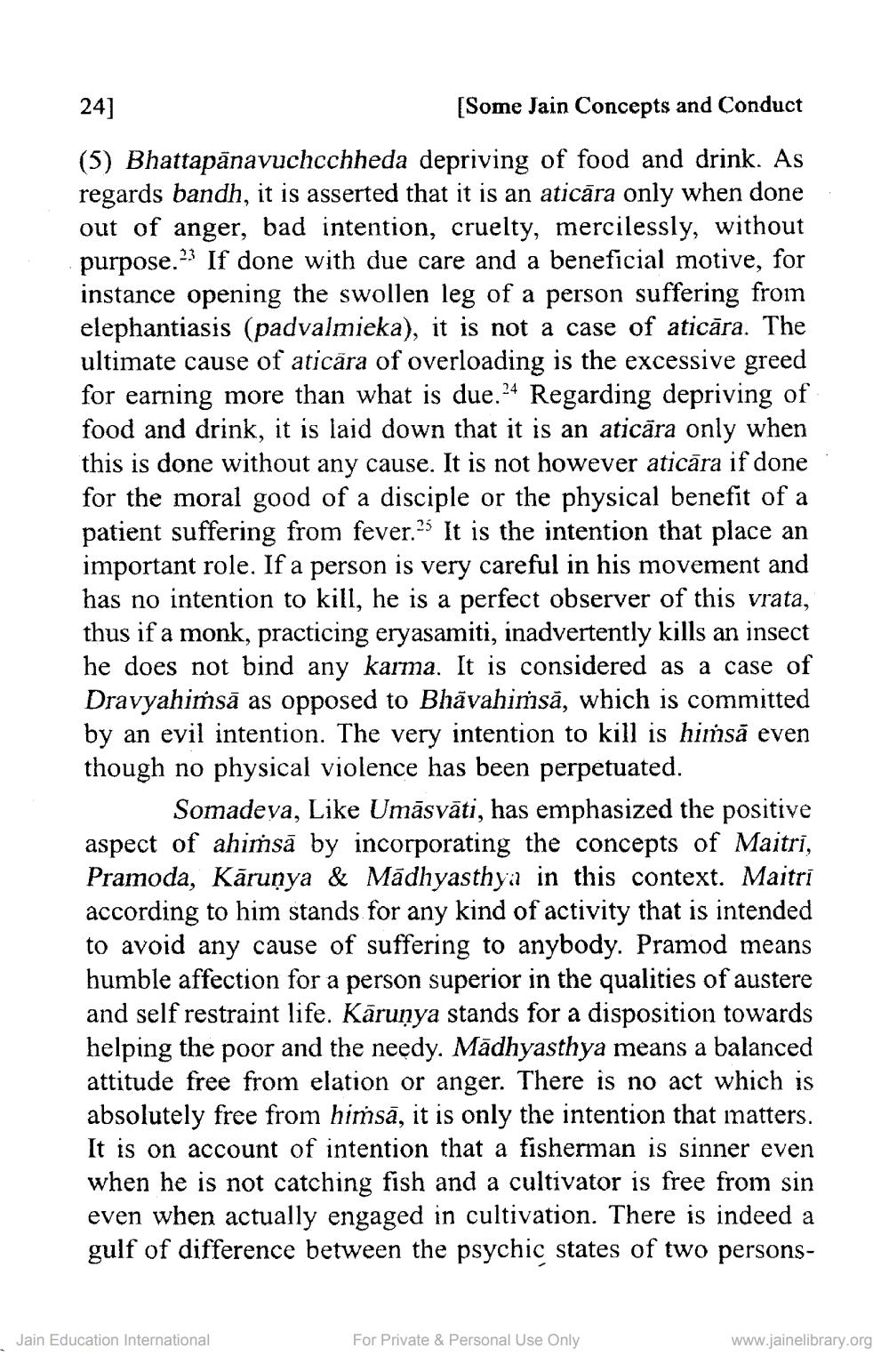________________
24]
[Some Jain Concepts and Conduct (5) Bhattapānavuchochheda depriving of food and drink. As regards bandh, it is asserted that it is an aticāra only when done out of anger, bad intention, cruelty, mercilessly, without purpose.?} If done with due care and a beneficial motive, for instance opening the swollen leg of a person suffering from elephantiasis (padvalmieka), it is not a case of aticāra. The ultimate cause of aticãra of overloading is the excessive greed for earning more than what is due.24 Regarding depriving of food and drink, it is laid down that it is an aticāra only when this is done without any cause. It is not however aticāra if done for the moral good of a disciple or the physical benefit of a patient suffering from fever.” It is the intention that place an important role. If a person is very careful in his movement and has no intention to kill, he is a perfect observer of this vrata, thus if a monk, practicing eryasamiti, inadvertently kills an insect he does not bind any karma. It is considered as a case of Dravyahiṁsā as opposed to Bhāvahimsă, which is committed by an evil intention. The very intention to kill is himsă even though no physical violence has been perpetuated.
Somadeva, Like Umāsvāti, has emphasized the positive aspect of ahiṁsā by incorporating the concepts of Maitri, Pramoda, Kārunya & Madhyasthya in this context. Maitri according to him stands for any kind of activity that is intended to avoid any cause of suffering to anybody. Pramod means humble affection for a person superior in the qualities of austere and self restraint life. Kārunya stands for a disposition towards helping the poor and the needy. Madhyasthya means a balanced attitude free from elation or anger. There is no act which is absolutely free from himsā, it is only the intention that matters. It is on account of intention that a fisherman is sinner even when he is not catching fish and a cultivator is free from sin even when actually engaged in cultivation. There is indeed a gulf of difference between the psychic states of two persons
Jain Education International
For Private & Personal Use Only
www.jainelibrary.org




